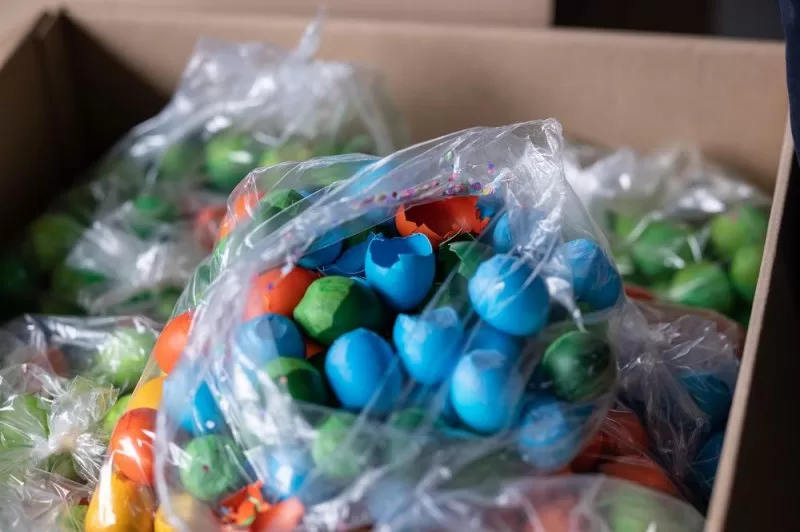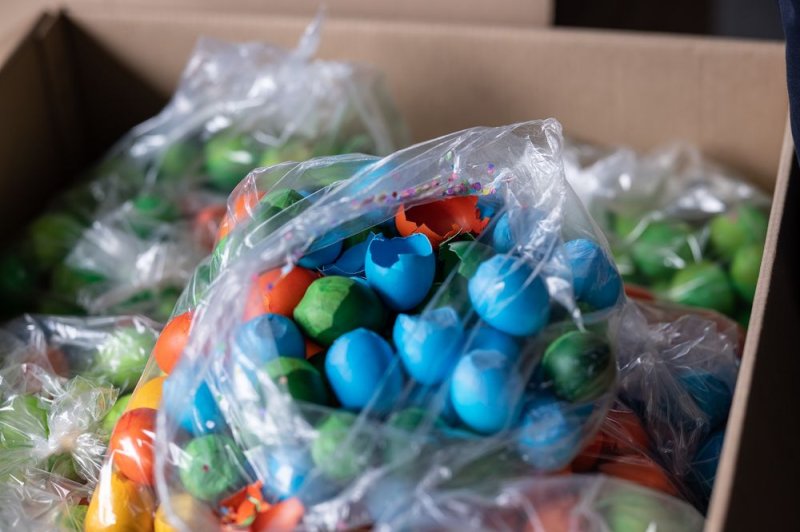1 of 2 | According to tradition, when a cascaron — a hollowed-out egg shell filled with confetti or trinkets — is broken over a person’s head, it brings that person good luck. But Customs and Border Protection officials on Tuesday warned travelers about restrictions on the popular holiday items (pictured). Photo courtesy of Customs and Border Protection
March 19 (UPI) — U.S. Customs and Border Protection officials on Tuesday warned Easter celebrants about restrictions on cascarones, a popular part of holiday celebrations in Mexico and the U.S. Southwest.
According to tradition, when a cascaron — a hollowed-out egg shell filled with confetti or trinkets — is broken over a person’s head, it brings that person good luck.
During this time of year before Easter, many border-crossing travelers carry the holiday item.
But in its advisory Tuesday, CBP reminded travelers that the items are restricted in an effort to prevent the further spread of Newcastle disease, a highly contagious and potentially fatal viral disease affecting birds and poultry. It is found in contaminated egg shells and across many different bird species.
Also known as Virulent Newcastle disease, it is not a food-safety concern, according to U.S. officials.
According to Border Protection officials, the disease can cause exceptionally high mortality, especially in turkeys. CPB officials said the virus also infects chickens, ducks, partridges, pheasants, quail, pigeons and ostriches.
Because of the risk, CBP has restricted cascarones to quantities of 12 per person. The egg shells can be decorated or painted but they must be clean, dry and free of any egg residue, CBP officials said, adding that the shells can contain confetti or trinkets.
CBP also reminded anyone crossing the border that fresh eggs, raw chicken, and live birds or poultry remain prohibited from Mexico because of that nation’s infection of Newcastle disease and highly pathogenic avian influenza (HPAI).
Anyone attempting to bring in those or other prohibited agricultural items could face fines from $300 to $1,000, CPB officials said.
In September, U.S. Customs and Border Protection in Louisville, Ky., reported that it recently had interdicted 1,500 pounds of unauthorized pork and poultry shipments from Hong Kong in an effort to prevent the spread of Newcastle disease and HPAI.
Not only are egg shells a risk, but so, too, are bird nests. In 2017, Customs officials at a Texas airport said they seized 63 birds nest pieces from a traveler arriving from Vietnam.

